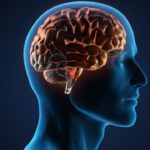With more than 2.7 billion active users each month, a team of German researchers at Ruhr-Universität Bochum explored the social media giant Facebook for any correlation between depressive symptoms and Facebook addiction disorder (FAD) among highly-stressed individuals. They found that depressed users were more likely to engage in extensive Facebook use to cope with daily stressors. The results appeared in the peer-reviewed journal Cyberpsychology, Behavior, and Social Networking.
For the study, researchers examined active users on the social platform from two countries: 909 from the United States and 531 from Germany. For a better insight into its users, online surveys were issued to both German and American participants to collect relevant data, in which compensation was offered after participation.
For the measurement of daily stressful experiences, the Brief General Daily Stressors’ Strain Screening was utilized over a span of 12 months. And for the assessment of depressive symptoms, researchers used the Depression Anxiety Stress Scales 21. With this data, the study aimed to establish if depressive symptoms served as a moderator between daily stress and FAD.
According to Jürgen Margaf, co-author of the study: “Previous research has described a positive association between the experience of daily stress and addictive Facebook use. In this study, depression symptoms were found to positively moderate this link. Thus, present results complement earlier studies demonstrating that particularly depressed individuals are vulnerable to FAD.”
Based on the findings, depressed users were more likely to utilize the platform as a coping strategy, thus increasing the risk of extensive Facebook use. Researchers determined that depressive symptoms were a moderator between daily stressors and FAD.
“Although in the short term this coping strategy may foster positive mood, in the long term it enhances the risk of developing FAD, which negatively impacts subjective well-being,” Margaf explained. “The current results emphasize the necessity to make excessive Facebook use a subject of discussion in interventions for depressed persons.”
Despite the results, the study had some limitations. Researchers suggest future research replicating the current findings should seek to probe further moderators contributing to the development of FAD and expand to participants from other geographical areas.
“To conclude, this study found a close positive association between daily stress, depression symptoms, and FAD. Moreover, the present findings underscore the importance of depression symptoms as moderator between daily stress and FAD,” said Margaf.
“Future research is advised to investigate further moderators of this relationship to understand the mechanisms that may contribute to the development of addictive Facebook use.”


